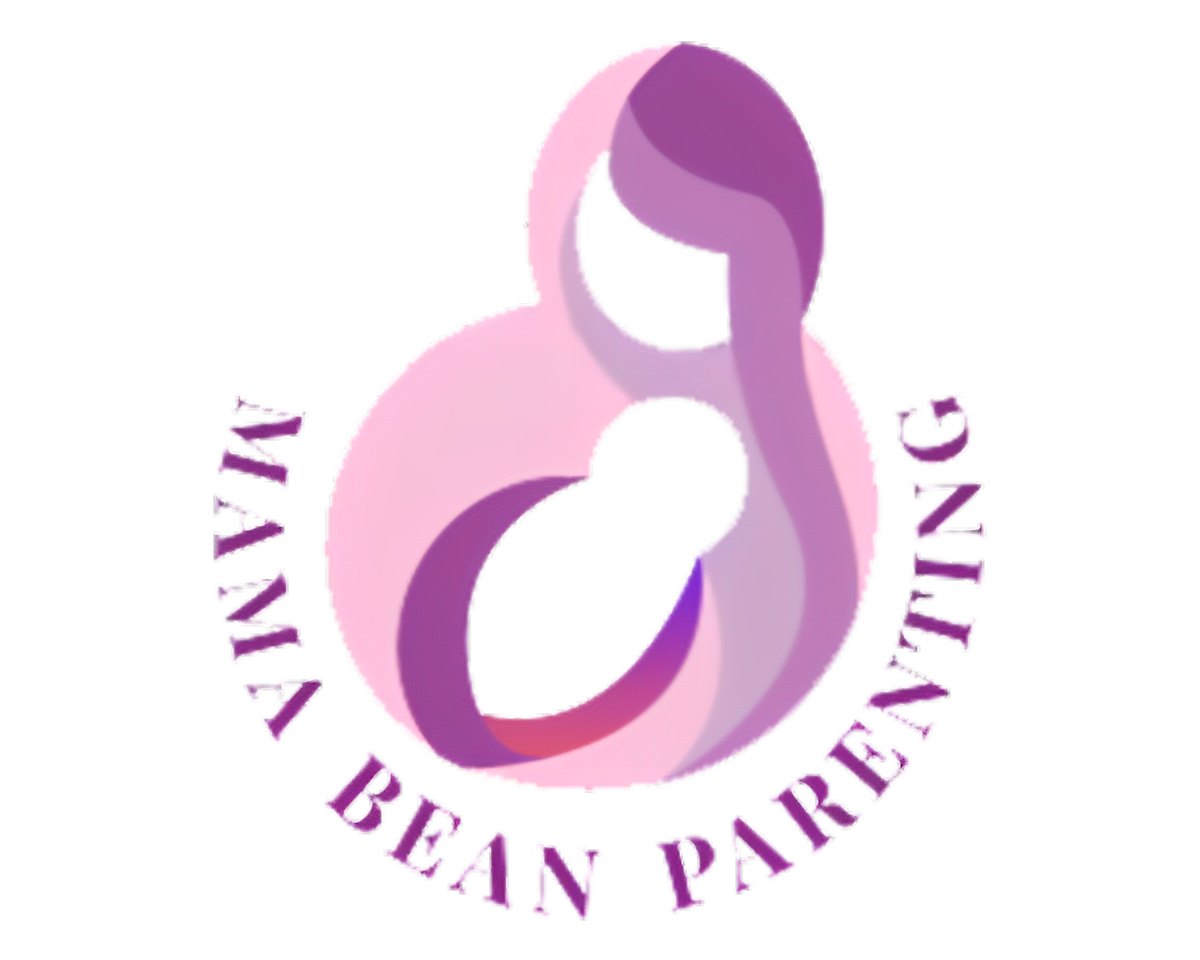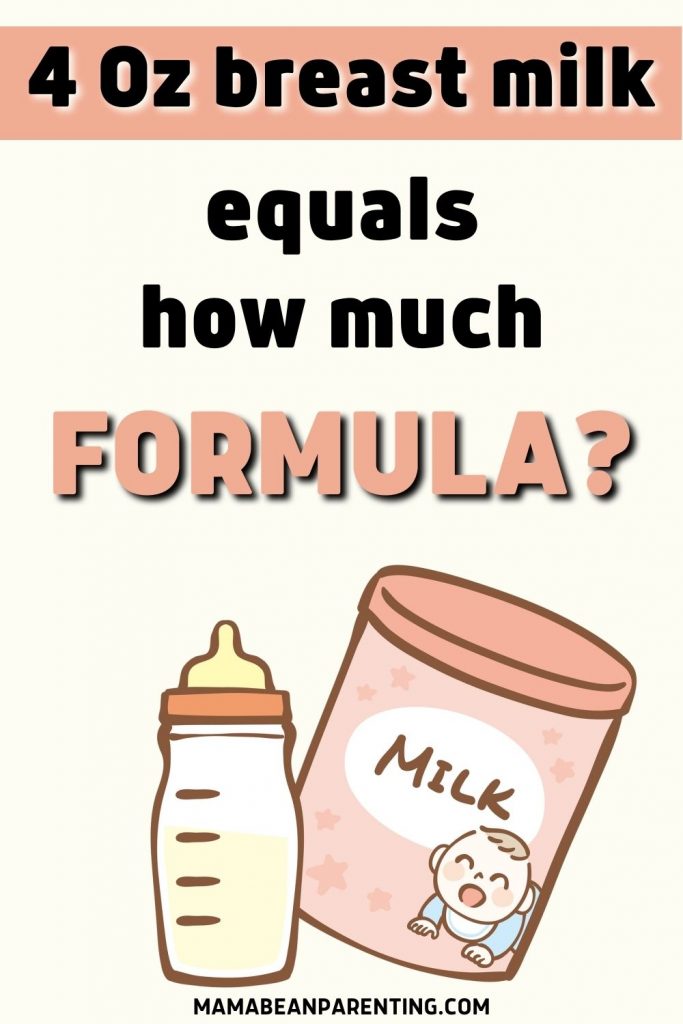When you’re a new mom, there are so many questions that you want to ask in terms of feeding your newborn (including breastfeeding too).
One of the most common ones is: 4 oz breast milk equals how much formula?
When I say one of the most common questions, I refer to moms who are unsure if they should breastfeed or employ powered formula bottles.
Before I help you out by answering the question, “4 oz breast milk equals how much formula?” I would like to remind you that breastfeeding is very beneficial for both you and your breastfed baby.
It makes sure your baby stays healthy and is getting the nutrition it needs.
But at times, it’s simply not doable for various reasons.
If you want to start using the formula, it’s essential to get yourself familiar with certain things.
This way, you’ll do things the right way and provide your little one with all the essential nutrients to stay healthy.
So let’s dive into this topic together, so you are no longer puzzled about it! Come on!
How Many Ounces of Formula Is Equivalent to Breast Milk?
Breastfeeding moms frequently do not know how much formula is required for their babies.
Experts suggest that babies should have 78 ml, which is 2.6 oz of breast milk per feeding. When converting, make sure not to forget to include those additional ounces!
Keep in mind that one pound equals sixteen ounces.
So how will you determine how many ounces of formula your baby needs?
Well, something like this will depend on the baby’s age and weight. For example, a newborn who weighs 8 Ibs should receive 3 ounces of breast milk per every feeding session.
But now, answering the question: 4 oz breast milk equals how much formula?
From what I’ve heard, regarding the “4 oz breast milk equals how much formula” topic, you would have to use 2 scoops of formula and mix it with 4 ounces of water to get an equal amount.
This is a general rule of thumb. However, your main goal should be to figure out how to convert breast milk to a bottle per feeding.
Another thing I would like to add is the fact that breast milk is generally easily digested in comparison to formula. Therefore, your breastfed baby may not need large amounts of feeding formula.
Luckily, there are lots of brands on the market that put how many scoops you should use during each feeding.
Consequently, if you opt for them, the “4 oz breast milk equals how much formula?” topic won’t represent an issue anymore.
But at the end of the day, if you have any questions concerning the formula, then make sure to consult your pediatrician to get all the help you need.
This way, you’ll get all the necessary answers, and who knows, he just might tell you 4 oz breast milk equals how much formula.
How Often Should You Feed Your Newborn Daily?

There are lots of questions when it comes to newborns. However, the most common one for sure is how often you should feed it each day.
Well, no answer’s one hundred percent accurate, since it highly depends on the baby’s appetite, and age, of course.
From birth to 4 months, babies should be fed every two to three hours, which equals eight times per day if you want them to stay healthy.
However, babies with a larger appetite are oftentimes very hungry, which means you’ll have to feed them more than eight times a day.
If you are not one hundred percent sure if your breastfed baby is hungry, then feel free to offer a feed to see how it will react.
Remember that just like with us adults, every baby has different needs. Hence it will have different feeding schedules.
Some babies would want to eat all the time, and then some are not as hungry.
If you want to determine which group your little one belongs to, then simply pay attention to cues to feed it accordingly. This will make sure your baby is never hungry.
Each time you notice that your infant is hungry, jot that down so you can create a breastfeeding schedule that you can rely on to meet the breastfeeding needs of your kiddo, so it is getting all these necessary nutrients.
Of course, there’s no need to remind you that it’s essential to maintain enough breast milk so you can continue breastfeeding.
How to Arrive At The Proper Amount of Milk For Your Baby?
Several steps need to be taken during this process, and below I’ll go into detail about each of them to help you understand things better.
1. Step 1 – A lot of things depend on the current weight of your newborn. That’s precisely what determines the right amount of milk you should be giving and how many feedings each day it requires to avoid overeating.
One pound is 16 ounces and you can convert these additional ounces into pounds by splitting the ounces by 16.
Thereby, if your kiddo weighs 8 pounds 4 ounces, that will be 8.25 pounds. Furthermore, if you utilize kilograms to weigh your newborn, then simply multiply by 2.2 to get the answer in pounds.
Therefore, a baby who weighs 3.74 kilograms has 8.25 pounds.
I know that all of this calculation may be a bit overwhelming and tiring; however, remember that this is the best way to prevent overfeeding your little one.
And that’s not good for them because it can make them feel sick and uncomfortable, so please pay attention to this.
2. Step 2 – Healthcare providers advise feeding the baby 2.5 ounces of breast milk every day per pound of body weight for newborns that are up to 10 pounds.
Since you know how much your baby weighs in pounds, then all you have to do is multiply that by 2.5, and voila!
A newborn who weighs 8.25 pounds into 2.5 ounces of milk (recommended) makes it 20.6 ounces which is what the baby needs each day.
Therefore, this leads us to conclude that your infant needs around 20.6 ounces of breast milk in 24 hours in order to feel full, yet not overfed.
3. Step 3 – Yes, I believe all of this information (regarding steps) has killed your will to live, but bear with me for just a bit because we’ll end this segment very quickly!
Now, we should figure out how many ounces of breast milk can fill up a bottle for a baby that’s 8.25 pounds.
To figure that out, you need to split the total number of ounces per day by how many feedings you give your little one in a single day.
As I previously concluded, younger infants and newborns are supposed to be eating every 3 hours, which is 8 times per day.
Consequently, you must divide 20.6 ounces by 8 and get 2.6 ounces of milk. This right here is the amount of breast milk that you’re supposed to give during each feeding, which is a total of 20.6 ounces of milk.
If you have an 8.4 pounds baby, then you will have to give it 2.6 ounces of breast milk in a bottle each feeding for a total of 8 times per day.
Amount of Formula for 4 oz of Breast Milk

Now that I’ve explained some things above, it’s time to conclude how many scoops of the formula are necessary to get the ideal milk quantity for each breastfeeding session.
It doesn’t matter whether you’re tuning to formula because you do not have enough breast milk or not; the goal as a mom is to feed your newborn with the right amount of it because that’s the whole point of good nutrition.
As I already stated when I was covering the “4 oz breast milk equals how much formula” topic, 4 oz of breast milk can be made from the formula by mixing 4 ounces of water with 2 scoops of formula.
So if you take the aforementioned example as a reference to your infant, then we can conclude that you should take 3 scoops and prepare enough so you can feed your baby twice and have 6 oz of formula milk.
Thereby, you can add 2.6 in every feeding session and then put the rest into the third bottle that’s intended for breastfeeding.
In case you didn’t know, you should never put extra water, plus you should ensure you are following the manufacturer’s instructions regarding formula making. This will help you understand things better.
But why adding extra water isn’t recommendable?
Well, that’s because it will completely ruin the formula and decrease its nutritional value.
I would like to emphasize the fact that formulas cannot be made in odd numbers, but even numbers instead, because the ratio becomes disturbed if you put half of the formula.
Something like this can potentially ruin the mixture, meaning that the formula will be either too fluid or too concentrated.
Is Formula More Filling Than Breast Milk?
Is formula more filling than breast milk question is something that new parents constantly ask themselves.
Unfortunately, I will have to disappoint you and tell you that the “Is formula more filling than breast milk?” question is actually far more complex than it appears to be at first glance.
The truth is both formula and breast milk can be very nutritive and fill your little one. However, there are still some things that have to be distinguished.
• As I mentioned at some point, breast milk is more easily digested than bottled formula, meaning your little angel will most likely be hungry more often.
On the flip side, breast milk contains much more calories and fat than bottled formula, which means that your baby will feel fuller for a more extended period of time after being fed. There are also ways to make your milk fattier.
• Formula generally doesn’t often cause gastrointestinal problems such as constipation and gas, which is frequently the case with breast milk.
However, your baby’s GI tract may find it hard to digest, meaning it will be hungry very soon.
• Breast milk is loaded with antibodies that positively affect a baby’s immune system, which cannot be said for bottle formula.
As you can see, this whole “Is formula more filling than breast milk?” topic is very puzzling to me too. I can only imagine what you’re thinking at the moment.
I think it’s safe to say that formula is more filling than breast milk because it does take longer to digest. However, after all, it all comes down to what suits you and your baby the most.
If you notice that your baby is content and, more importantly, that it is gaining weight, then there’s no need to give up on breast milk.
On the other hand, if you notice that your kiddo is constantly cranky and hungry, yet you’re giving it a formula, then it would be advisable to try out different varieties or brands.
But please do not do any of these things without consulting your pediatrician first. This way, you will determine if it’s smart to switch bottle formulas or not.
Can You Combine Formula & Breast Milk Together for Formula Fed Baby?
Yes, that’s permissible, but there are still several factors that must be taken into consideration before you decide to take this step.
For starters, it’s pivotal to understand the fact that formula and breast milk are not interchangeable.
These are nothing but two different sorts of milk that were designed to meet all your baby’s needs in terms of nutrition and health.
Therefore, although you are allowed to mix these two, keep in mind that, after all, your little one will still need to have both bottle formula and breast milk to get all the necessary nutrients.
You can make it easier for yourself if you try making a breastfeeding and pumping schedule.
Another thing that you should remember is the fact that when combining bottle-feed formula with breast milk, you must do this in the proper proportions.
So what do I mean by that?
It means that you should combine one part of the formula for bottle feeding with two parts of breast milk.
However, this doesn’t instantly mean that you should hold on to this ratio as if your life depends on it. Namely, it can vary depending on the needs of your baby.
That’s precisely why it’s of massive importance to first consult your pediatrician before you start mixing these two.
When combining infant formula with your breast milk, remember that you must use freshly expressed milk.
If, by any chance, you store your breast milk for longer than 24 hours, then you shouldn’t mix it with formula.
Why is that?
Well, that’s because it’s no longer nutritious or fresh for your newborn.
Should You Give the Same Amount of Formula As Breast Milk?

I know for sure that a vast majority of new parents worry whether their baby is getting enough baby formula or breast milk.
Even though I completely understand all your concerns, please do not forget that every baby eats differently because it has different needs.
Generally speaking, formula-fed babies tend to eat more than breast milk babies since breast milk can be digested much faster, unlike formula.
Hence formula-fed babies need to eat more often.
On the flip side, it is widely known that breast milk is loaded with essential nutrients, meaning that babies who consume breast milk will gain weight more slowly.
If you’re scared that your little one isn’t having enough breast milk, then as always, it would be advisable to talk to your pediatrician.
He or she will be able to tell you if your baby is getting everything that’s necessary and will most certainly give you some advice regarding your milk supply, meaning how to increase it.
I would say this for a millionth time – every baby is different, so do not stress over everything. Just follow your gut, and if something seems odd, then feel free to seek help.
But please do not jump to conclusions that quickly. It won’t benefit you or your baby but will only further stress you out.
Do Babies Consume More Than 4 Ounces of Breast Milk Daily?
I’m afraid that this topic is a bit controversial because some people believe that anything over 4 ounces is too much for the baby.
And then you have those who firmly believe that babies should have as much as they want.
So what’s the final answer to this question?
As I’ve stated numerous times in this article, there’s no such thing as “one size fits all.” Something like this simply doesn’t exist.
That’s why you should keep reminding yourself that every baby will have different needs.
Some will consume large amounts of breast milk, and then you’ll have those who will eat less.
What you as a mother must do is always make sure you have a stable milk production and maintain more milk if that’s what your little one needs.
Is It Okay to Breastfeed During the Day and Bottle Feed At Night?
Breastfeeding is generally essential for the first 6 months of the baby’s life. However, it doesn’t mean that it’s by any means mandatory.
Thereby, if you decide that you want to breastfeed during the day and turn to a bottle at night, then that’s completely okay.
At the end of the day, that’s your choice. This sort of “modification” will not negatively impact you or your baby.
After all, if you decide to implement this strategy, then this way you will get the chance to finally have some good night’s sleep while your partner (or your family members) feeds the baby.
Is It Okay To Mix Breast Milk From Two Different Days?
That’s also fine since breast milk doesn’t get spoiled so fast. However, if you notice there’s some strange smell that showcases that your breast milk is no longer okay, then please throw it in the trash.
Another thing that I would like to add when it comes to this is that you shouldn’t combine breast milk that’s from the fridge with warm.
If you’ve decided to use warm milk, then you can only mix it with the one that’s warm as well.
Conclusion

I knew precisely right from the start that this topic was going to be very complex because there are so many things that need to be taken into account to calculate everything correctly.
But if I were you, I wouldn’t worry about whether your baby is eating too much or too little. As I’ve stated several times (this is the last one, I promise), it all depends on its age, weight, and many other factors.
If your little angel seems content and healthy, then that’s what matters the most!

Well, hello there!
My name is Jennifer. Besides being an orthodontist, I am a mother to 3 playful boys. In this motherhood journey, I can say I will never know everything. That’s why I always strive to read a lot, and that’s why I started writing about all the smithereens I came across so that you can have everything in one place! Enjoy and stay positive; you’ve got this!


